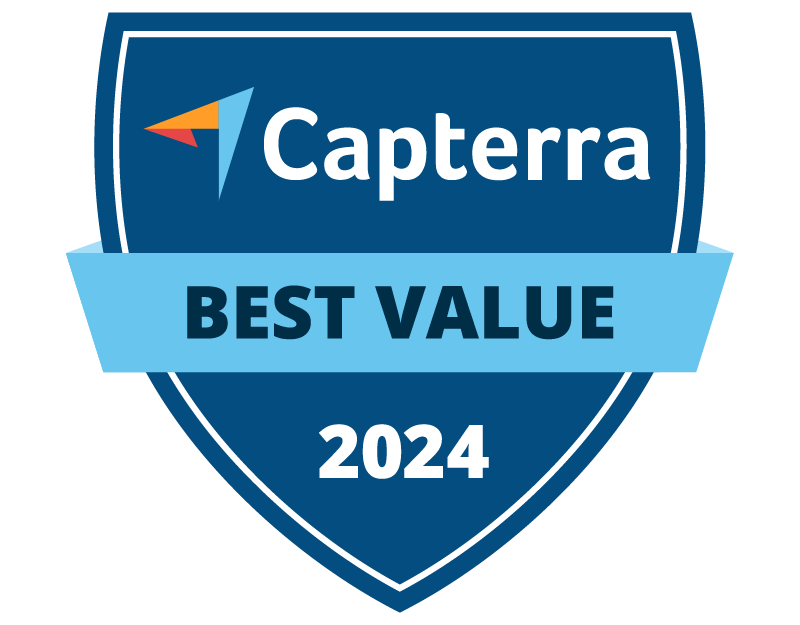When delving into the realm of real estate investment, it’s crucial to familiarize oneself with various financing options, one of which is hard money lending. In this section, we will explore the definition, characteristics, and the mixed bag of benefits and drawbacks associated with hard money lenders.
Definition and Role in Real Estate Investment
- Hard Money Lending Defined: It’s a loan primarily secured by the property itself, rather than the borrower’s creditworthiness. This type of lending is typically used in real estate transactions where quick, short-term funding is needed.
- Role in Investments: Hard money loans are particularly useful for investors looking to renovate and flip properties, or those needing to act quickly on a real estate deal that won’t qualify for traditional bank financing.
Key Characteristics of Hard Money Loans
- Speed of Funding: One of the most appealing aspects is the speed at which these loans can be processed, often within days.
- Loan-to-Value Ratios: These loans typically have higher loan-to-value ratios compared to traditional loans.
- Shorter Terms: Hard money loans usually have shorter repayment terms, often ranging from one to three years.
Benefits and Drawbacks
- Advantages:
- Quick Access to Funds: Ideal for rapid acquisitions or when traditional funding isn’t an option.
- Less Stringent Requirements: More focus on the collateral value than on credit scores.
- Potential Risks:
- Higher Interest Rates: These loans often come with higher interest rates and fees.
- Short Repayment Periods: The short maturity of these loans can be a double-edged sword, requiring quicker turnover of the investment.
Understanding the dynamics of how to find hard money lenders for real estate is foundational for any investor looking to navigate the fast-paced world of real estate investments. While they offer a unique and powerful tool for certain real estate transactions, it’s vital to weigh their advantages against potential risks to make informed decisions.

Identifying Your Financing Needs
In the journey of real estate investment, identifying the right type of financing tailored to your specific needs is a crucial step. This section focuses on assessing your real estate investment goals and determining when hard money loans are the most suitable financing option.
Assessing Investment Goals and Financial Requirements
- Understanding Your Project: Before considering financing options, it’s essential to clearly define your real estate project – whether it’s a quick flip, a major renovation, or a long-term rental property.
- Financial Assessment: Evaluate your financial situation, including your budget, cash flow, and the amount you can allocate as a down payment. This assessment helps in determining the size and type of loan you require.
Appropriateness of Hard Money Loans
- Short-term Projects: They are best suited for short-term investments like house flipping, where the investor plans to renovate and sell the property within a short timeframe.
- Quick Funding Needs: If you need to close a deal quickly and can’t wait for traditional bank loan approvals, hard money loans offer a faster solution.
- Renovation Loans: When a property requires significant renovation before it can be sold or rented, hard money lenders often provide the necessary funds when other lenders may not.
Considerations Before Choosing Hard Money:
- Cost-Effectiveness: Compare the costs of a hard money loan with its benefits, such as speed and convenience, to ensure it aligns with your investment strategy.
- Exit Strategy: Have a clear plan for paying off the loan, considering the shorter repayment period and higher interest rates.
In the context of how to find hard money lenders for real estate, understanding when and why these loans fit your investment strategy is fundamental. By carefully assessing your financial needs and the specific requirements of your real estate project, you can make an informed decision about whether hard money lending is the right choice for you. Remember, the right financing choice not only supports your current project but also contributes to the long-term success of your real estate investment journey.
Research and Due Diligence
A key aspect in learning how to find hard money lenders for real estate is conducting thorough research and due diligence. This step is crucial in ensuring that you partner with a reputable and reliable lender suited to your specific project needs. This section will guide you through the essential research process and provide a comprehensive checklist to aid your evaluation.
Importance of Thorough Research
- Assessing Lender Credibility: Investigate the lender’s track record, including their history in the industry and feedback from previous clients.
- Understanding Terms and Conditions: Scrutinize the terms of the loan, such as interest rates, fees, and the flexibility of the repayment schedule.
- Legal and Regulatory Compliance: Verify that the lender adheres to all relevant laws and regulatory requirements to avoid any legal complications.
Checklist for Selecting a Hard Money Lender
- Interest Rates and Fees: Compare rates and fees across various lenders to ensure you are getting a competitive deal.
- Loan Terms: Look for terms that align with your project timeline and exit strategy.
- Lender’s Reputation and Experience: Consider the lender’s reputation in the real estate community and their experience with similar projects.
- Flexibility and Responsiveness: Evaluate the lender’s willingness to work with you on your specific needs and their responsiveness to inquiries and concerns.
- References and Past Client Reviews: Seek out references and read reviews from other real estate investors who have worked with the lender.
Undertaking research and due diligence is a critical step in finding the right hard money lender for your real estate investment. It not only helps in identifying the most suitable and reliable lender but also ensures that the terms of the loan align with your investment goals and capabilities. Remember, a well-informed decision at this stage can significantly impact the success and profitability of your real estate venture.

Leveraging Online Resources
In today’s digital era, leveraging online resources is a key aspect of how to find hard money lenders for real estate. InvestNext stands out as a prime example of such a resource, offering a comprehensive platform for real estate investment management. This section guides you through the benefits of using such online tools and how InvestNext can be particularly beneficial.
Using Online Platforms and Directories
- Broad Reach: Online resources like InvestNext provide access to a wide range of lenders, each offering unique terms and specialties.
- Comparative Analysis: These platforms enable easy comparison of lenders’ rates and terms, enhancing decision-making.
- Convenience: Accessible anytime and anywhere, these resources simplify the search for hard money lenders.
InvestNext: A Comprehensive Tool for Investors
- Automated Investment Management: InvestNext offers features like automated task handling and precise portfolio management, streamlining your investment process.
- In-Depth Analytics: The platform provides robust tools for analyzing and managing investments, crucial for making informed decisions.
- Community and Learning: With its emphasis on user experience, InvestNext also serves as a knowledge hub, offering insights and learning opportunities for investors.
Utilizing platforms like InvestNext can significantly enhance your ability to find suitable hard money lenders while managing your real estate investments more efficiently. These online resources are not just about finding funding; they’re about empowering your entire investment strategy with advanced tools and community support.
Evaluating Lender Credentials
A critical aspect of how to find hard money lenders for real estate is to thoroughly evaluate their credentials. This section guides you through the process of vetting potential lenders to ensure their credibility and reliability, which is crucial for a successful real estate investment.
Vetting Process for Lenders
- License Verification: Confirm that the lender is licensed to operate in your state. This information is typically available on state regulatory websites.
- Background Check: Investigate the lender’s history for any past legal issues or complaints filed against them.
- Financial Stability: Assess the lender’s financial health to ensure they have the capacity to fund your project.
Verification Tips
- Check References: Ask the lender for references from previous borrowers and reach out to them to understand their experience with the lender.
- Review Past Transactions: Request details of past lending transactions to gauge the lender’s experience and expertise in handling projects similar to yours.
- Professional Associations: Determine if the lender is a member of any reputable real estate or financial associations, which can be a sign of their commitment to professional standards.
Evaluating a hard money lender’s credentials is a vital step in safeguarding your investment. It helps in ensuring that you engage with a professional and trustworthy lender, capable of meeting your financial needs and handling your project with expertise. By thoroughly vetting potential lenders, you can avoid potential pitfalls and establish a secure financial foundation for your real estate venture. Remember, the time and effort invested in this process can significantly contribute to the success of your real estate investment.
Diversifying Your Funding Sources
As you explore how to find hard money lenders for real estate, it’s equally important to consider diversifying your funding sources. This approach not only mitigates risk but also provides a balanced and resilient investment strategy. This section encourages investors to explore a mix of financing options and highlights the value of a well-rounded investment portfolio.
Exploring Various Financing Options
- Traditional Lenders: Banks and credit unions, although they have stricter requirements, can offer longer-term loans with lower interest rates.
- Private Lenders: These can include friends, family, or private investors who may offer more flexible terms.
- Crowdfunding and Peer-to-Peer Lending: Online platforms that allow you to raise funds from a large number of investors.
Value of a Diversified Portfolio
- Risk Mitigation: Different types of financing come with varying levels of risk. Diversifying helps in balancing these risks.
- Flexibility in Financing: Having multiple sources of funding allows you to choose the most advantageous option for each specific project.
- Access to More Opportunities: A diversified approach to financing increases your ability to take on a variety of projects, enhancing your growth potential in the real estate market.
Diversifying your funding sources is a strategic move in the realm of real estate investment. While hard money lenders can be a vital part of your financing mix, complementing them with other types of lenders broadens your financial base. This not only provides more stability to your investment portfolio but also opens up a wider range of investment opportunities. As you grow in your real estate investment journey, a diversified approach to financing can be a key factor in achieving long-term success and resilience.

Final Advice
As you embark on your journey to find hard money lenders and diversify your real estate investment strategies, consider leveraging the advanced capabilities of InvestNext. This platform transforms the way you manage and streamline your investment processes, offering a suite of tools tailored for real estate syndication and investment management. With InvestNext, you gain access to intuitive features for capital raising, investor relations, and portfolio management, all designed to enhance your investment efficiency. Elevate your real estate investment experience with it. Explore InvestNext to discover how it can become an integral part of your investment toolkit.







